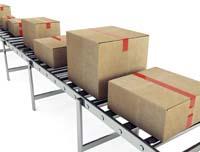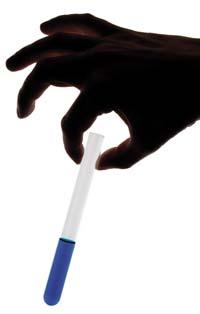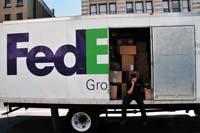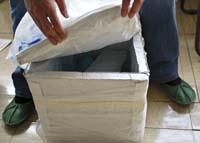Customs, stop to term unknown

It was Friday and the cells remained on Monday in Madrid. He sent them in dry ice and the ice would last for a few days, but if he did not pick them up on Friday, the packs would spend the whole weekend in the warehouse of the transport company. Too long, the ice probably melted and the cells were lost. Somehow he had to get him out to look for cells to prevent him from putting on new ice and spoiling himself. In the end he got it, when it was missing an hour to close the office of the transport company, with ice in the area.
It would not be the first time he lost cells for the biologist Aintzane Apraiz. It also happened on two occasions, when he was traveling from one research laboratory to another. He made a stay at the University of Charleston, where he made three trips. "In one of them they came thawed to the finish line and in the other they were damaged in the same customs," explains Apraiz. In the Department of Cell Biology and Histology of UPV/EHU, a very common type of cancer is being studied in children, acute lymphoblastic leukemia, and human cells are being used in studies.
Cell lines are sold by commercial houses. Subsequently, researchers transform acquisitions and characterize them for their research. Apraiz, for example, turned cells into "drug resistant" we studied. The loss of modified cellular lines is, therefore, the "loss of employment and investment of several months".
For biological samples, whether human cells, animal tissues, plants, fungi, bacteria or whatever, it is very important to take care of the conditions in which they are stored or packed. And if the biological sample is a dangerous commodity, that is, it contains agents causing infections, such as viruses, bacteria or pathogenic fungi, in addition to measures to prevent the deterioration of the sample, measures must be taken to avoid accidents in public health.
Even if they are not biological, other products used for research are within the group of dangerous goods for their properties: they can be explosive, gases, flammable liquids or solids, comburent, toxic, corrosive, radioactive material, etc. In short, in the world all kinds of research and activities are carried out, with all kinds of products and substances, which must be transported from one side to the other when necessary. Thousands of such shipments are made daily.
At the border between countries, "any substance that could affect public health is strictly controlled, according to Royal Decree 65/2006, which establishes criteria for the import and export of biological samples, since the approval of the Spanish Constitution in 1978. Since then, to avoid any type of health problem, food, medicines and raw materials are controlled for their production, as well as all kinds of samples". Depending on the nature of the substances or products and the mode of transport, there are different regulations or guidelines. However, all of them have a common goal: to ensure safe transportation and avoid accidents at risk. To do this, the regulations require that they be properly classified, documented, certified, described, packaged, marked, labeled and in good transport conditions according to the requirements of each product.
For the transport of the products subject to this account, the transport companies are usually hired by those interested, who know the regulations and know the necessary arrangements and conditions. They also ensure the conservation of products and samples during the transport process for proper conservation. However, when, for any reason, all the papers and customs authorities do not permit the passage, the person responsible is not the carrier company, but the person or entity that orders the transport.

Stop in customs
In the case of Apraiz, the cells stopped because they had not sent a certification to the Ministry of Health and Consumption. This certificate must be completed by the sender of origin and “detailing that during this period a sample of this type will be sent to this university, for what the shipment will be used, where it comes from, how it will be transported, which company will transport, etc.” From the Ministry, the authorization is sent to the requesting entity and to the customs of the entrance airport.
Due to ignorance Apraiz failed for having made this type of shipments in a timely manner. Companies that ship more frequently also have problems in customs. The company Ikerlat Polymers of Lasarte-Oria has several anecdotes. "Some customs require requirements that do not affect the products we sell and ship at all, but without them they cannot pass customs," explains Joxe Sarobe.
Ikerlat Polymers synthesizes the nanometric spheres of polystyrene and sends them in aqueous emulsions. "We sell this product to our customers and they place them around them antibodies to specifically identify a disease, a pregnancy, etc. ", explains.
For transport, the particles do not present special requirements, since “they are absolutely synthetic and are totally stable in the conditions they can have on the road. However, to send it to a Brazilian client, we must specify that it must be transported to 2-8ºC at the time of shipment and, at the time of requesting the permits, we have been left in customs if we have not. It seems that this customer is registered in customs as a regular importer or exporter, and normally the products that he sends from one side to the other yes that he has to transport them in that temperature range. Once said customer informed me that the product was stopped in customs, since it did not put anywhere that should be transported between 2-10ºC. I told him I didn't need that, but he asked me to put it, it was essential that I appear. Since then, so we make all the shipments with that client."
Sarobe has explained that they also have special requirements to send the albarán in Brazil: "When you send the saddle to the customer, you must be signed with a blue and sealed pen. If you don't send it that way, they don't accept it officially."
Conventional control stops Conventional control stops

In customs, the control of the transported products is not limited only to the subject of documentation, but also carries out physical inspections. To carry out the controls, as well as to decide what to inspect and what not on the goods that arrives, the criterion called risk analysis is followed. "From Brussels they send out the criteria. Normally they are looking for goods that want to enter fraudulently, or that cannot enter, or that have falsified the documentation, among other things", explains the representative of the General Laboratory of Customs of Madrid. They seek products that can endanger public health, the environment, or the protection of consumers.
In these criteria, the nature of the products in transport is not included. As explained from the laboratory, "because we are a chemical we do not study it or reject it with greater interest. In this laboratory we analyze equally a chemical and a shoe, or the clothes you wear at this time. If you come from China, for example, you may be analysed here to check whether you meet customs and special taxes criteria."
Sarober has ever happened that a customer has called him to tell him that some of the products received had the appearance of having been manipulated: "When we send small samples, we collect the containers with a paraffin film to go more protected and see if they have been manipulated. As some ships came to the customer without that movie. Therefore, I think they would open them in customs."
However, Sarobe considers that these customs acts "are not habitual. Yes, you have to be very demanding and know the behavior of each customs. Over time you get used to meeting these kinds of requirements." In Ikerlat Polymers it has been noted that the customs rigor levels are different in each territory. "I don't know if it's because the picaresque is bigger, but in general, developing countries control transport more rigorously. In the so-called developed countries these things are taken with more tranquility. At least it is much easier for us to send a certain product to the United States or Germany than to Brazil or India," says Sarobe.






